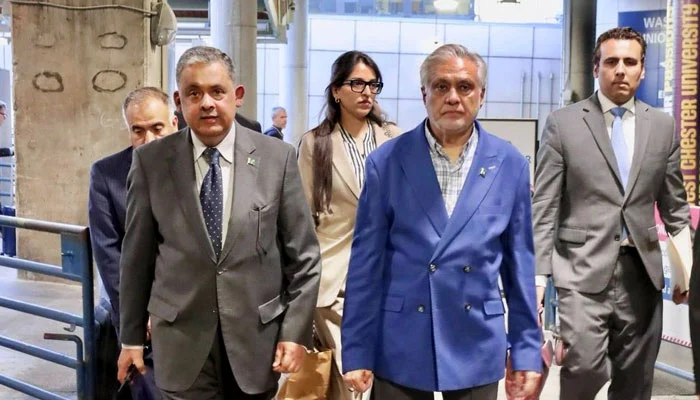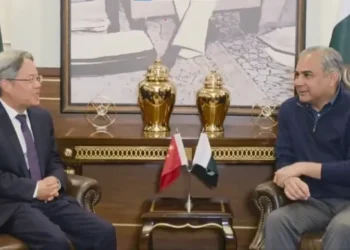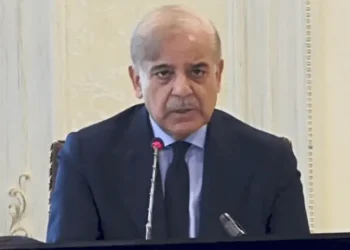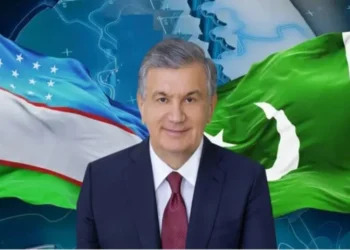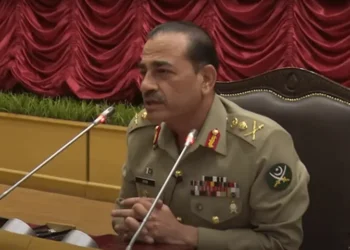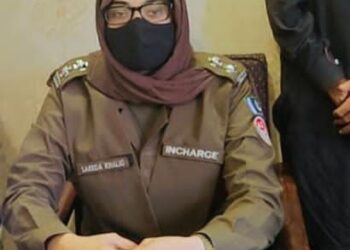Washington DC; Deputy Prime Minister and Foreign Minister Ishaq Dar arrived in Washington on Thursday night, marking the second leg of his eight-day diplomatic visit to the United States. Upon arrival, he was welcomed by Pakistan’s Ambassador to the U.S., Rizwan Saeed Sheikh, along with senior embassy officials, according to a statement by the Foreign Office.
During his stay in Washington, Dar is set to meet U.S. Secretary of State Marco Rubio for the first time. Their bilateral discussions, scheduled to take place at the U.S. Department of State, will center on strengthening Pakistan-U.S. relations, with a strong emphasis on boosting trade, investment, and economic cooperation. U.S. State Department spokesperson Tammy Bruce confirmed the meeting and said she would be part of the delegation-level talks.
In addition to official meetings, the deputy prime minister will also deliver an address at the Atlantic Council, a leading American think tank. There, he will outline Pakistan’s stance on key regional and global developments and share Islamabad’s vision for the future of bilateral ties with Washington.
Meanwhile, Bloomberg reported that Pakistani officials will also meet members of the Trump administration to finalize a trade agreement. Pakistan is currently negotiating for relief from 29% reciprocal tariffs imposed earlier in April. As part of the talks, Islamabad has offered to increase imports of U.S. cotton and soybeans — a move that highlights Pakistan’s status as the second-largest buyer of American cotton after China.
Diplomatic relations between the two countries appear to be on an upward trajectory. Recently, U.S. President Donald Trump extended an invitation to Pakistan’s Army Chief and Field Marshal Asim Munir for high-level discussions at the White House, signaling a thaw in bilateral ties.
The Foreign Office said Dar’s visit reflects Pakistan’s increasing engagement in global diplomacy, particularly as the country currently holds the rotating presidency of the United Nations Security Council (UNSC) for the month of July — its first time since 2013.
Earlier in the week, Dar had arrived in New York to attend key UNSC events, including a high-level conference on Palestine. At a reception hosted by Pakistan’s UN mission, he emphasized the need for inclusive dialogue and diplomatic cooperation in addressing global crises. He said Pakistan’s foreign policy is grounded in peaceful conflict resolution and multilateral engagement.
Under Pakistan’s presidency, the UNSC unanimously adopted Resolution 2788, which Islamabad had tabled to promote peaceful dispute resolution. Dar also announced Pakistan’s candidacy for a seat on the UN Human Rights Council (UNHRC) for the 2026–2028 term, with backing from the Asia-Pacific Group.
In a significant diplomatic moment, Dar chaired the UNSC’s quarterly open debate on the Middle East, focusing on the Palestinian issue. He called for an immediate and unconditional ceasefire in Gaza and unrestricted humanitarian access to the war-torn region. Stressing justice and dignity for Palestinians, Dar said, “The path to lasting peace lies in international law, ending occupation, and advancing diplomatic solutions.”
His remarks underscored Pakistan’s firm stance on the Palestinian cause and its broader commitment to international peace, justice, and cooperative diplomacy.




















































